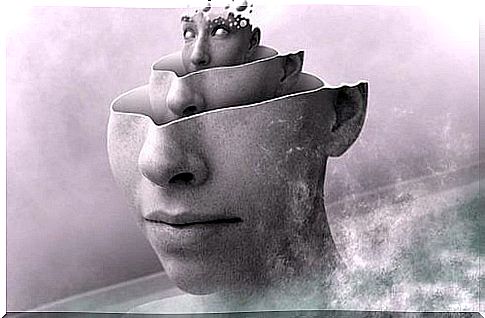Toxic Emotions: 7 Prevent Us From Being Happy

We are aware that in the field of psychology and personal growth, the word “toxicity” is perhaps overused. For example, we often hear about toxic people or toxic behaviors. This changes when we talk about toxic emotions. Here we refer to emotions that harm, that limit our psychological well-being and happiness.
Sometimes, in fact, some concepts find their best translation in these terms borrowed from other contexts.
In reality, there are no “toxic” people. There are people who, more simply, are unable to build relationships that are healthy, satisfying or based on mutual respect.
The word “toxic” therefore has no scientific value, but rather illustrates a dysfunctional behavior that causes discomfort, pain or unhappiness.
Today in our space we talk about this: of the emotions that most threaten the emotional balance and in so doing, the possibility of building and leading a happier and more satisfying life.
1. The shame

It is said that shame is lost over the years, but instead there are those who intensify it to surprising levels, applying it to almost every area of their life.
- Shame manifests itself in many ways. There is the shame of showing oneself as one is, of wearing certain clothes, of asking others, of showing ourselves vulnerable, of trusting, of talking to the people who most attract us …
It is clear that in social interactions and in daily life there are definite limits, barriers that we never cross for reasons of morality, convention or decorum.
However, in the area of personal growth, one thing must be clear: shame suffocates our true identity and our self-realization.
The feeling of shame has to do with fear and insecurity. It is therefore never too much to deepen the knowledge of ourselves, especially of what we do not accept or of the aspects of our personality on which it is more painful to work.
2. Anxiety: one of the most dangerous toxic emotions
Anxiety is toxic when it crosses the physiological threshold that gives us the motivation, the urge to demand more from ourselves.
- When we come to perceive a continuous state of threat, stress or corrosive anxiety, we talk about toxicity, that is, a negative emotion capable of overwhelming us.
- Chronic anxiety, far from stimulating us to improve, discourages, exhausts and deprives us of concentration.
3. The anguish, subtle among the toxic emotions

Anguish is a time bomb: multiple negative dimensions are compressed in it: fear, feeling of threat, negativity, uncertainty, low resistance to frustration, pain.
No one can live eternally immersed in anguish. It is a way to die while remaining alive, to completely deny ourselves the possibility of being happy and fulfilling ourselves as people.
4. Eternal dissatisfaction
In some circumstances, dissatisfaction acts as a powerful engine that pushes us to change, to overcome ourselves, to improve.
- When dissatisfaction, however, becomes chronic and unjustified, malaise and apathy invade everything.
- Thus, little by little we lose the desire to do things, the fortitude, the smile and the motivation.
Beware of chronic dissatisfaction : it is often likely to be one of the symptoms of depression.
5. Envy among toxic emotions
To envy others is not correct and not even healthy. Experiencing this feeling or emotion throughout our life has the only effect of bringing our self-esteem under the heels.
- Envy leads along the path of suffering. Desiring for ourselves qualities, objects or dimensions that do not belong to us or that we are unable to obtain is painful and not useful for our psychological well-being.
- Not being able to rejoice in the successes of others, to respect or appreciate what others are or have, says a lot about us.
- We need to be able to rejoice in our successes, love each other and also appreciate what others are achieving.
6. Constant fear
If we wanted to give a simple definition of happiness, we could say: absence of fear.
We know that fears have a specific task: they help us survive, they alert us when we take a risk.
When, however, we get to the point where everything scares us, where the feeling dominates us that every action we take will go wrong, every change is negative and we feel criticized, abandoned or persecuted, we are boycotting our happiness.
7. The frustration
A “healthy” frustration stimulates change, to overcome our limits. Toxic frustration strands us on the beach of fears, broken dreams and surrender.
- It cannot be ignored that frustration feeds on our failures, disappointments, unfulfilled dreams and unfulfilled goals.
- Before becoming a grudge person, therefore, let’s practice learning from our mistakes and failures to look forward, to apply new strategies, to regain control of our lives and be successful in the fields that are most important to us.
We have therefore seen that these emotions, which we all experience to some degree, can have a positive aspect, if we can keep them under control.
When they are the ones who hold the reins of our life and we ourselves make them sit in the palace of our mind without reacting, they will become toxic emotions …
Main image courtesy of © wikiHow.com









